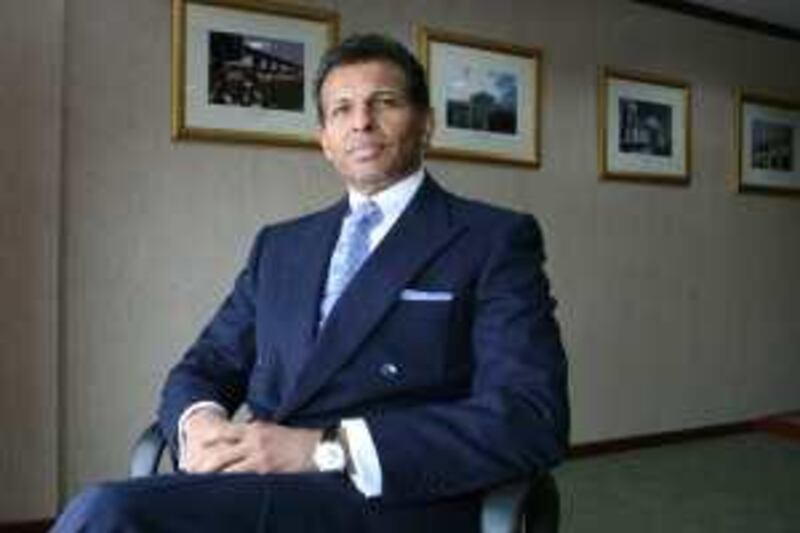The country's largest school operator is threatening to close old Asian community schools within two years if it is not allowed to raise fees. The warning comes less than two weeks after Dubai's Knowledge and Human Development Authority (KHDA), which regulates the emirate's schools, barred private schools from increasing their tuition fees in the new academic year because of tough economic conditions.
Sunny Varkey, the chairman of the operator, GEMS Education, said in a letter to the KHDA's director general, Dr Abdulla al Karam, that urgent solutions are needed to problems that "challenge the very existence of these schools". "In the current circumstances," he wrote, "a number of our schools have been driven to breaking point and we as GEMS can no longer commit to maintaining our own internal and KHDA quality standards ... Consequently, it is highly likely that we will have no choice but to begin to close down unviable schools over the next two years."
Mr Varkey was speaking of older community schools, some of which have been operating for decades and have fees of less than Dh5,000 (US$1,360) a year. Those schools have served Dubai for up to 40 years, he said, with fees "significantly lower than the Dh15,000 and above average fee charged by new schools for the same product with no track record of delivering quality education in UAE". Most Indian and Pakistani schools in Dubai charge roughly between Dh1,000 and Dh7,000 a year. They are believed to house more than 40,000 pupils.
By contrast, some schools founded in the past three years charge more than Dh20,000 per year for higher grades. The letter is Gems's first public reaction to the KHDA's freeze on fees. It is also the latest public spat in the often tumultuous relationship between the market leader and its powerful regulator. More broadly, it voiced the frustrations of school operators who feel the tuition freeze hampers their ability to match more expensive schools in performance.
In a statement, Mohammed Darwish, the chief of the regulations and compliance commission at the KHDA, said the authority was drafting a response to the letter. Shahnaz Aslam, the mother of a pupil at Al Majd Indian School in Dubai, said a fee rise would hurt families such as hers. "If it is all business and money, the children would not be able to go to school. The future is going to be ruined," she said.
Mrs Aslam pays about Dh4,500 a year in fees for her daughter. But she worried that closures could lead to shortages of school places similar to those plaguing Abu Dhabi's Indian schools. Mr Varkey demanded that older schools be allowed to "restructure" their fees to deal with higher operating costs including land leases, teacher salaries and the construction of new facilities. Newer schools that are allowed to enter the market with higher fees are damaging the older schools by luring away teachers with more competitive salaries, he said.
The result of schools not being able to respond to rising rents is that they are forced to relocate, which, he argued, is more costly than a one-time fee increase. Gems said that over the past six years the average increase in operating costs for Asian schools has been 57 per cent. The average increase in tuition fees has been 27 per cent. Meanwhile, commercial rents, unlike residential rents, have been increasing.
Principals at some lower-income schools said that the problems cited in Mr Varkey's letter are important. "On behalf of the schools, they have voiced for us," said one principal whose school fees are between Dh2,070 and Dh2,250 a year. "All the concerns he raised in the letter are true and genuine." He said his school's landlord had tried to raise the lease by up to 600 per cent two years ago, but the KHDA intervened on the condition that the school not increase its fees.
Marza Ghalib, the principal of the Central School in Dubai, which charges Dh2,500 to Dh4,400 a year, said he expected that the schools would not develop their facilities and increase classroom sizes, rather than shut down. "The quality of the school and the facilities to the children - to make some investment is required," he said. He urged the authority to allow fee increases of between 15 and 20 per cent, which he estimated would add Dh20 to Dh25 a month to school bills.
The rent his school pays to rent the land it is on increased by 400 per cent two years ago, he said. @Email:kshaheen@thenational.ae







